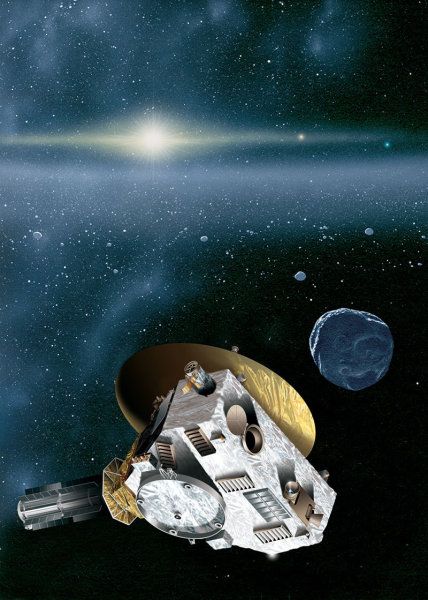A controversial decision by NASA to reduce funding for the New Horizons spacecraft’s primary mission has sparked discontent among scientists and space officials. The move has been met with criticism, with several senior scientists, including Alan Stern, the principal investigator of New Horizons, expressing their disappointment.
The New Horizons spacecraft was specifically designed to explore the Kuiper belt, a ring of icy objects in the outer regions of the solar system. Its mission aimed to provide invaluable insights into the formation of the sun’s planets billions of years ago. The spacecraft made history when it successfully reached Pluto in 2015, transmitting stunning images and revealing new information about the dwarf planet’s composition and atmosphere.
Following its flyby of Pluto, New Horizons continued its journey into the Kuiper belt, culminating in a close encounter with Arrokoth, the most distant and primitive object ever explored by a spacecraft. These encounters yielded groundbreaking data that significantly contributed to our understanding of planetary formation.
The decision to reduce funding means that New Horizons will no longer pursue its main objective of studying planet composition within the Kuiper belt. Instead, the spacecraft will focus on studying space weather and other phenomena. While NASA has emphasized that the spacecraft will not be entirely shut down, the shift in focus has been met with skepticism and disappointment from the scientific community.
Alan Stern emphasized the scientific significance of New Horizons’ mission, stating that understanding the way planetesimals, the building blocks of planets, combine and coalesce is crucial to comprehending our own solar system and the planets around other stars. Several scientists echoed his sentiment, expressing concerns about the premature termination of a mission that could still contribute valuable scientific knowledge.
One of the challenges faced by the New Horizons team is finding another suitable object to study within the Kuiper belt. While efforts have been made to identify potential targets, the task has proven exceptionally difficult. Despite the ongoing pursuit of a new flyby target, the reduction in funding jeopardizes the chances of future discoveries.
Critics argue that the decision to scale back the New Horizons mission is shortsighted both scientifically and financially. The spacecraft still possesses the capability to conduct significant research within the Kuiper belt, and prematurely halting the mission limits the potential for future groundbreaking discoveries.
The New Horizons mission has been a remarkable achievement, pushing the boundaries of space exploration and deepening our understanding of the outer reaches of our solar system. However, the controversy surrounding the reduction in funding raises questions about the prioritization of scientific endeavors and the long-term impact on our knowledge of the cosmos.


